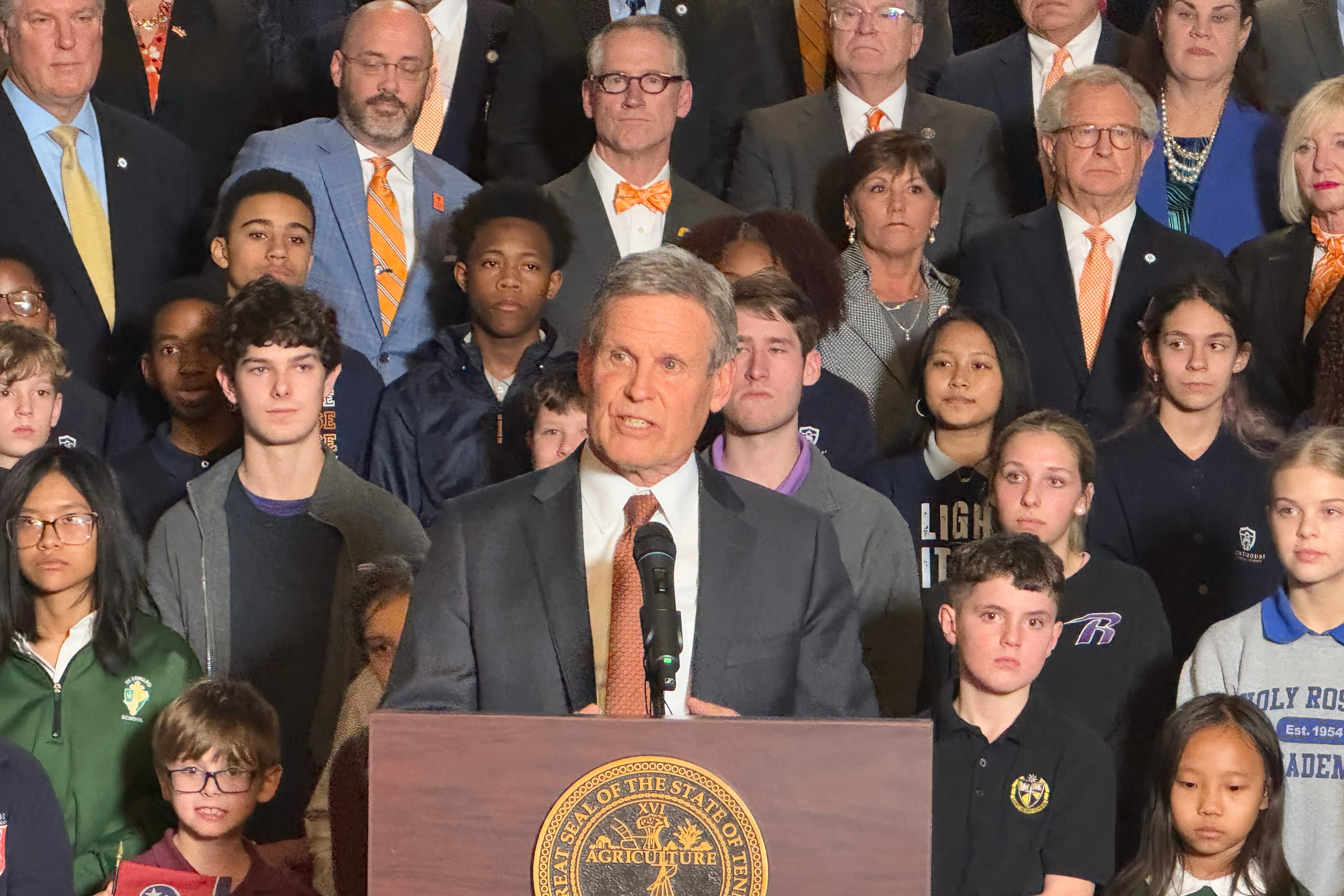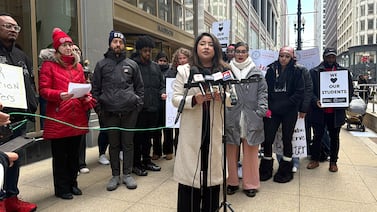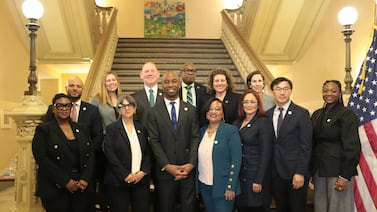Sign up for Chalkbeat Tennessee’s free newsletter to keep up with statewide education policy and Memphis-Shelby County Schools.
Tennessee House Speaker Cameron Sexton wants to add at least 20,000 new seats to the state’s new voucher program when lawmakers return to the state Capitol next year, expanding the program to at least 40,000 students.
Sexton’s proposal would mark a dramatic expansion of the taxpayer-funded school choice initiative that cost the state $144 million in its first year. Democrats, long critical of sending public dollars to private schools, decried proposals to expand the program as “fiscally reckless” on Thursday.
The speaker’s statement to Chalkbeat Tennessee also aligns with comments from Gov. Bill Lee’s office on Thursday that the program should grow to “meet demand that already exists” after the program received more than 42,000 applications for 20,000 available seats this fall.
When the Republican supermajority passed the Education Freedom Scholarships program at a January special session, it included an expansion mechanism that would allow the legislature to add 5,000 seats if applications amount to at least 75% of the total scholarships available in the previous year. At the time, some lawmakers pointed to this expansion cap as a safeguard measure against budget woes that plagued rapidly expanding voucher programs in other states like Arizona.
But Sexton and Lee have both pointed to the more than 42,000 applications Tennessee received for the program this year, which quickly blew past the 75% threshold in the law.
‘The public’s response to EFS was overwhelming,” said Connor Grady, Sexton’s communications director. “The Speaker is committed to at least doubling the EFA scholarships to meet the demand from this year’s application process. Our goal is to ensure parents are in control of their child’s education by having additional opportunities and access to a quality education-no matter their zip code or family income.”
While Lee’s office was more circumspect in its comments, a spokesperson cited the application response as evidence that “Tennessee parents want choices when it comes to their child’s education.”
“Gov. Lee intends to work in partnership with legislative leadership to ensure the Education Freedom Scholarship program can meet demand that already exists, so that every child will have an opportunity to thrive in the learning environment that best fits their needs,” Elizabeth Johnson, Lee’s spokesperson, said.
Lee’s office did not respond to a Chalkbeat Tennessee question about the specific number of seats the governor would like to add to the program.
The governor has lauded the Education Freedom Scholarships program as a significant achievement of his term, having sought for years to expand private school choice in the state. Lee tried and failed to pass the program in 2024 before calling a special session in early 2025 to address the issue.
Sen. London Lamar, a Democrat from Memphis and chair of the Senate Democratic Caucus, said Democrats will oppose expansion “because our focus should be on strengthening the schools that serve every child — not diverting more taxpayer money into private schools that can reject any student they want.”
“This is fiscally reckless for taxpayers and insulting to public school students, educators and families. We don’t even have results from the first year of this program, and now Republicans want to double it? That’s irresponsible,” Lamar said.
Lamar estimated doubling the program would add at least $600 million to state costs in the first five years. The initial Education Freedom Act was expected to cost taxpayers at least $1.1 billion during its first five years, per a state analysis that projected out costs based on the 5,000-seat expansion mechanism.
Despite Sexton’s eagerness to quickly expand the program, the effort will likely brush up again budgetary concerns.
Lt. Gov. Randy McNally, a Republican from Oak Ridge, indicated Thursday night 2026 budget conversations will in part drive expansion plans.
“While there is clearly an appetite to expand, until we start examining the overall budget and revenue numbers it would be premature to commit to any specific scope,” McNally said.
Though the state has significant financial reserves, Tennessee revenues have fallen in recent years. Finance and Administration Commissioner Jim Bryson told The Tennessean the state’s budget will be “tighter” next year.
“The voucher program is one of the most expensive and unpopular Republican welfare programs in recent history,” said Rep. John Ray Clemmons, a Nashville Democrat and chairman of the House Democratic Caucus. “Our state cannot afford the current voucher scam, much less doubling the size of it. Bill Lee’s legacy will be destroying public education and bankrupting our state.”
In late September, Tennessee Department of Education released preliminary data on the voucher program after months of refusing to release details about who was benefiting from the program. The state is not explicitly tracking how many vouchers went to students already enrolled in private schools, nor is it collecting data on how many students with disabilities are enrolled in the program.
Data that was released by the department showed that while private school vouchers were awarded to students in 86 of the state’s 95 counties, the majority flowed to urban and suburban areas, which largely aligns with the locations of the 220 private schools where students enrolled. The majority of private schools receiving voucher funds have religious affiliations.
Melissa Brown is the bureau chief for Chalkbeat Tennessee. Contact Melissa at mbrown@chalkbeat.org.






